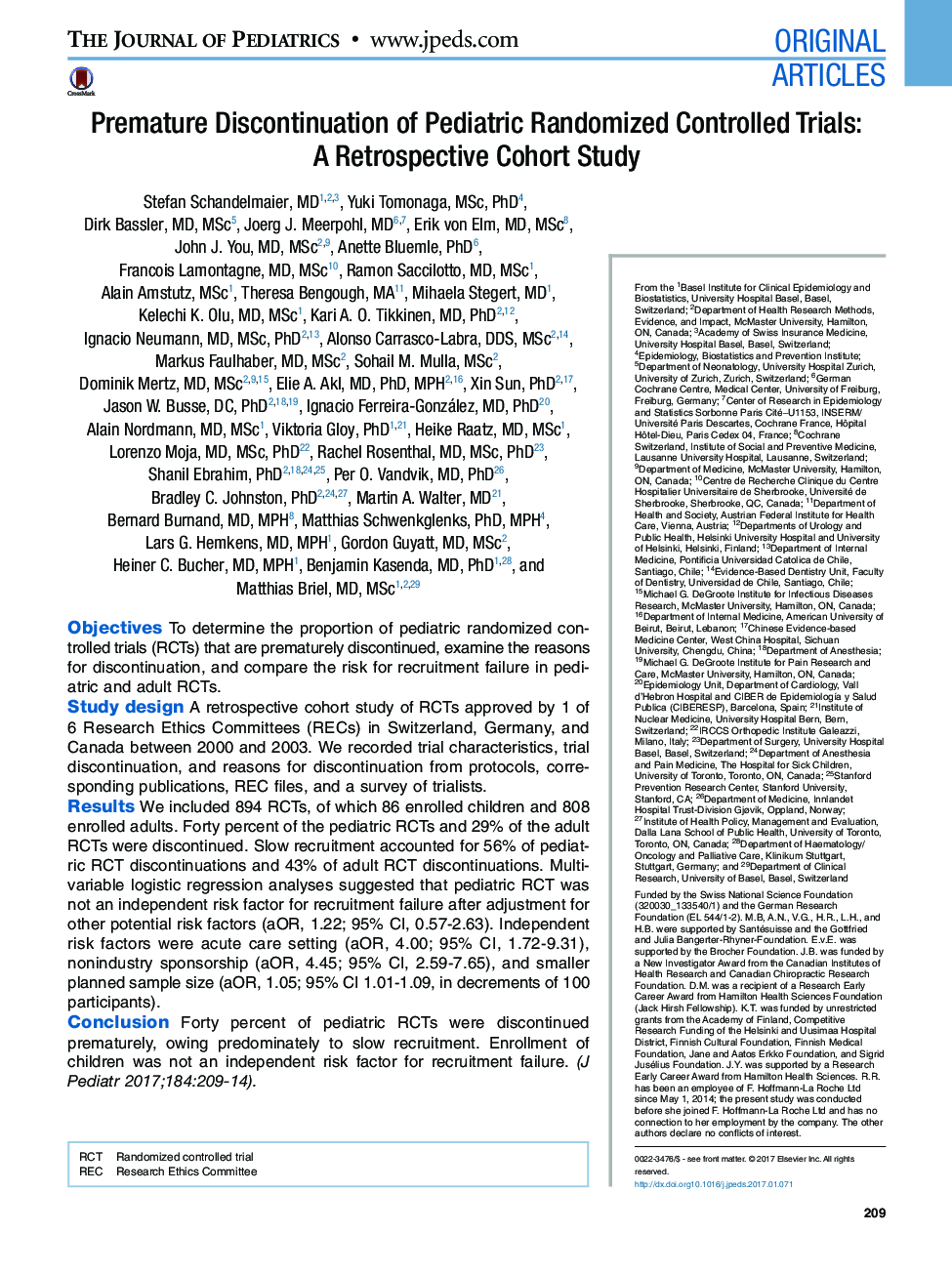| Article ID | Journal | Published Year | Pages | File Type |
|---|---|---|---|---|
| 5719605 | The Journal of Pediatrics | 2017 | 7 Pages |
ObjectivesTo determine the proportion of pediatric randomized controlled trials (RCTs) that are prematurely discontinued, examine the reasons for discontinuation, and compare the risk for recruitment failure in pediatric and adult RCTs.Study designA retrospective cohort study of RCTs approved by 1 of 6 Research Ethics Committees (RECs) in Switzerland, Germany, and Canada between 2000 and 2003. We recorded trial characteristics, trial discontinuation, and reasons for discontinuation from protocols, corresponding publications, REC files, and a survey of trialists.ResultsWe included 894 RCTs, of which 86 enrolled children and 808 enrolled adults. Forty percent of the pediatric RCTs and 29% of the adult RCTs were discontinued. Slow recruitment accounted for 56% of pediatric RCT discontinuations and 43% of adult RCT discontinuations. Multivariable logistic regression analyses suggested that pediatric RCT was not an independent risk factor for recruitment failure after adjustment for other potential risk factors (aOR, 1.22; 95% CI, 0.57-2.63). Independent risk factors were acute care setting (aOR, 4.00; 95% CI, 1.72-9.31), nonindustry sponsorship (aOR, 4.45; 95% CI, 2.59-7.65), and smaller planned sample size (aOR, 1.05; 95% CI 1.01-1.09, in decrements of 100 participants).ConclusionForty percent of pediatric RCTs were discontinued prematurely, owing predominately to slow recruitment. Enrollment of children was not an independent risk factor for recruitment failure.
